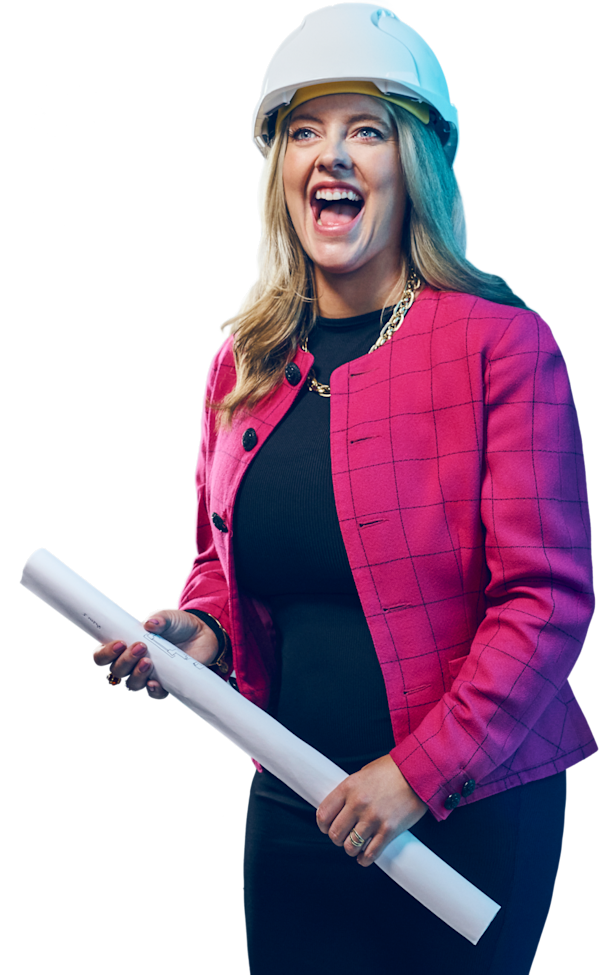
Equipment finance
If your business required equipment to get ahead, having access to specialist equipment will be central to your success. Equipment financing allows you to rent equipment and potentially own it outright at the end of the lease.
Benefits of equipment financing
Cash flow
Very few businesses have enough cash on hand to be able to purchase expensive equipment outright. Especially for new businesses, that amount of cash could seriously jeopardise cash flow if paid out for new equipment. For more established businesses, it also makes sense not to purchase equipment, especially if they intend on swapping it for a newer model in the future. This allows business owners to avoid dipping into cash reserves or working capital that can be used instead for business growth initiatives and to improve cash flow.
Tax efficiency
Some types of equipment finance like equipment leasing and sale and leaseback are more tax efficient than buying outright. That's because when you lease an asset it's a monthly expense that is tax deductible.
Easy to budget and manage
Equipment finance gives you predictable payments so you can spread the cost over time. That means that managing cash flow is easier so you can focus on running the business.
Flexibility and scalability
If you finance a piece of equipment and your business starts growing, you can get more quickly without a large financial outlay. Whether you're ramping up production or getting extra vehicles, equipment finance is a great way to grow your business.
Access to other lines of credit
One of the lesser-known but important reasons to use equipment leasing for buying equipment rather than buying it outright is access to other lines of credit. For similar reasons as tax efficiency, equipment finance is usually a predictable monthly expense, which means you can get another type of business finance alongside it. This is a huge advantage for some businesses — you could get the equipment you need, and take out a business loan for marketing, for example.
How does Funding Options work?
Tell us how much you need
We’ll ask a few questions about your business and the reason for your loan.
Get quotes instantly
Our smart technology will compare quotes from up to 120+ lenders to help you find the ideal business loan.
Apply for a Business Loan 🎉
We'll be there to guide you through every step of the process.

Trusted by over 21 customers
What are the different types of equipment financing?
Equipment leasing
Equipment leasing is a great way to keep your inventory of assets in good order — regular upgrades, servicing, tax efficiency, and cashflow management are just some of the benefits of leasing assets.
There are two types of equipment leasing, known as operating leases and finance leases, which offer a range of different timeframes and levels of commitment, depending on what equipment you need.
Hire purchase
Hire purchase is similar to equipment leasing in the sense that you make regular payments for an asset; but as the name suggests, you're effectively purchasing the item and paying in instalments. The major difference is that it will appear on your balance sheet from the beginning, so it makes sense if you want to have the asset for the long term, or the asset will hold its value well.
Plant equipment finance
Plant equipment finance is all about heavy machinery, machine tools, construction equipment and manufacturing equipment. If it lifts, shifts or has tracks like a tank, you can probably get it with plant machinery finance. Or maybe you need drive-in pallet racking shelving systems for your warehouse? You'd be surprised by the range of specialist heavy-duty items you can finance.
Estimate your costs today
If you're ready to take your business to the next level, use our business loans calculator to get an idea of what you can afford.
Want to understand the cost of your loan?
Use our business loan calculator below to find out how much you can borrow to take your business to the next level.
Calculations are indicative only and intended as a guide only. The figures calculated are not a statement of the actual repayments that will be charged on any actual loan and do not constitute a loan offer.
Monthly payments
-
Monthly interest
-
Total interest
-
Length of loan
-
Total cost of loan
-
Financial product information
Representative example*
• 7.63% APR Representative based on a loan of £50,000 repayable over 24 months.
• Monthly repayment of £2,252.94. The total amount payable is £54,070.56
*Some lenders may apply fees during the application process, please note that these are set and provided by these entities.
Annual Percentage Rates
Rates from 2.75% APR
Repayment period
1 month to 30 years terms
Equipment financing loans
A type of business loan
Equipment financing is a type of business loan, which enables businesses to purchase equipment and machinery on credit via an operating lease, hire purchase, or a finance lease. Hire purchase is short-term and best suited to equipment that you plan on replacing after the lease ends, in contrast, operating leases are long-term and it's often possible to purchase the asset at the end of the lease period. A finance lease is a type of equipment lease where the borrower (or 'lessee') rents an asset for most of the item's useful life.
Equipment as security
The equipment is used as security, so if you fail to meet repayments the equipment will be taken back by the lender. In the case of a capital lease, once the loan is paid in full, the business owns the piece of equipment. Equipment financing is a type of asset finance. The lender will purchase the equipment and insurers and maintain it. The business owner agrees to rent the equipment for a set period of time from 1 year up to 7 years.
Popular for agriculture businesses
This type of finance is popular for agriculture businesses. Farmers use expensive equipment to create efficiencies in their business, which leads to higher out and turnover. Yet, it often doesn’t make sense to put cash flow at risk to purchase this machinery up front. Another example would be the airline industry. Airlines often lease their plane over long-term leases in most cases, stretching from one up to twenty-five years.
How do I get an equipment loan?
24 hours
One of the advantages of equipment loans is that, if you’re eligible, they are quick to get, in fact, you could be approved for equipment finance in just 24 hours. This is great news for businesses that can’t wait weeks or months to purchase, replace or repair critical equipment.
Reach out
To get started, confirm how much finance you need, what it’s for and how quickly you need the funds. Our smart technology will compare 100+ lenders and match you with the right finance options for your needs.
Finance specialist
A finance specialist will help you through the process from application to receiving your funds.
Learn more about equipment finance
Types of businesses that use equipment loans
There's an almost limitless amount of industries and sectors eligible for equipment finance.
Bar and pub
Restaurant and takeaway
Café, bakery and coffee shop
Construction
Events
Agriculture and farming
Buses, coaches, cars, vans, trucks and haulage
Finance for a garage or mechanic
Laundry and dry cleaning equipment finance
Manufacturing and heavy industry
Office and IT equipment
Racking warehouse equipment and shelving
Refrigeration and air conditioning
How long can you finance equipment?
The amount of time you can take out an equipment loan will depend on a number of factors, including how expensive the equipment is, how much it is likely to lose its value and for how long the lender is willing to offer you the finance. It is possible to finance equipment for as little as a year up to seven years, and anywhere in between.
Please note that the information above is not intended to be financial advice. You should seek independent financial advice before making any decisions about your financial future.
It’s important to remember that all loans and credit agreements come with risks. These risks include non-payment and late-payment of the agreed repayment plan, which could affect your business credit score and impact your ability to find future funding. Always read the terms and conditions of every loan or credit agreement before you proceed. Contact us for support if you ever face difficulties making your repayments.
Funding Options, now part of Tide, helps UK firms access business finance, working directly with businesses and their trusted advisors. Funding Options are a credit broker and do not provide loans directly. All finance and quotes are subject to status and income. Applicants must be aged 18 and over and terms and conditions apply. Guarantees and Indemnities may be required. Funding Options can introduce applicants to a number of providers based on the applicants' circumstances and creditworthiness. Funding Options will receive a commission or finder’s fee for effecting such finance introductions.
